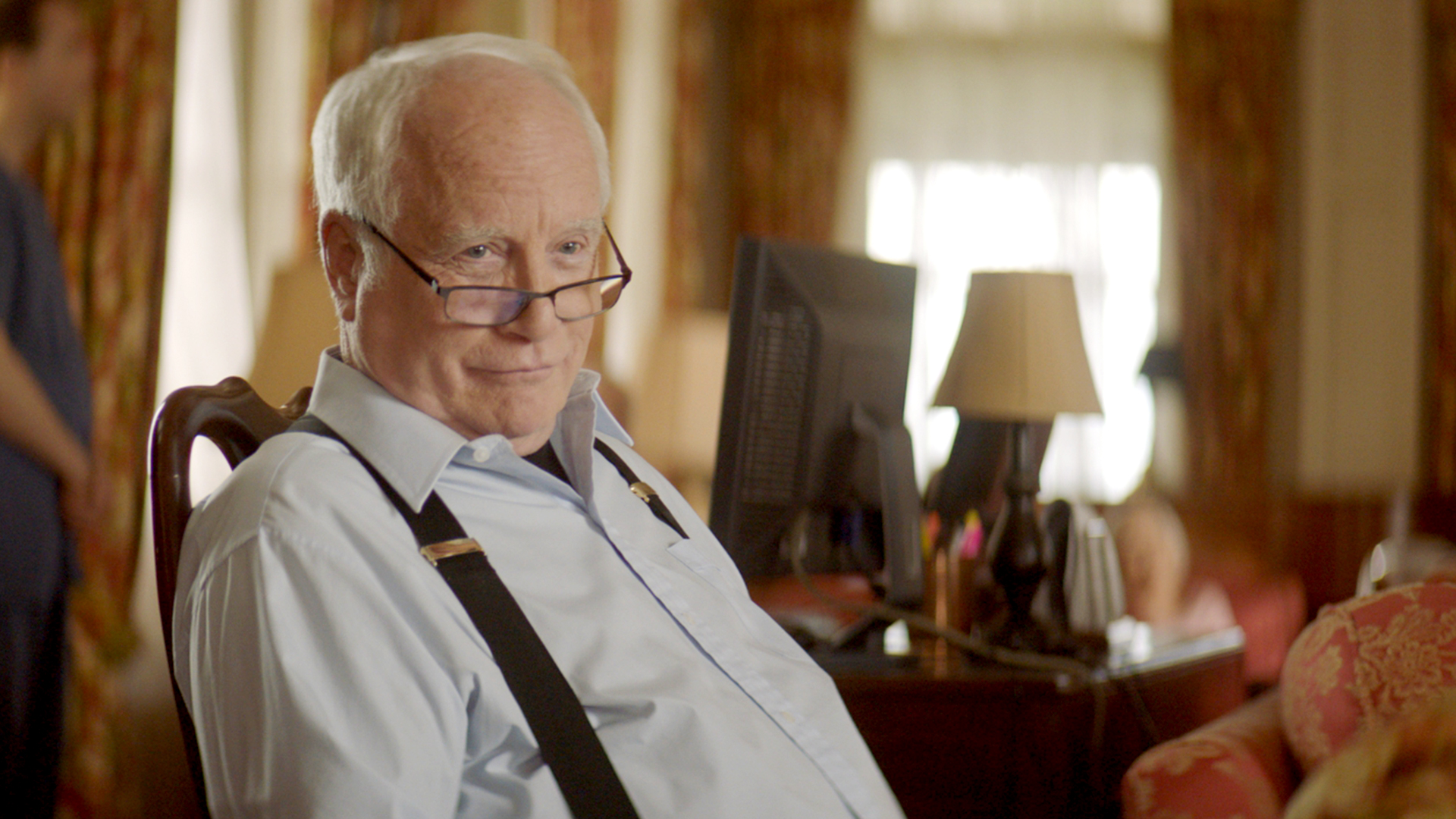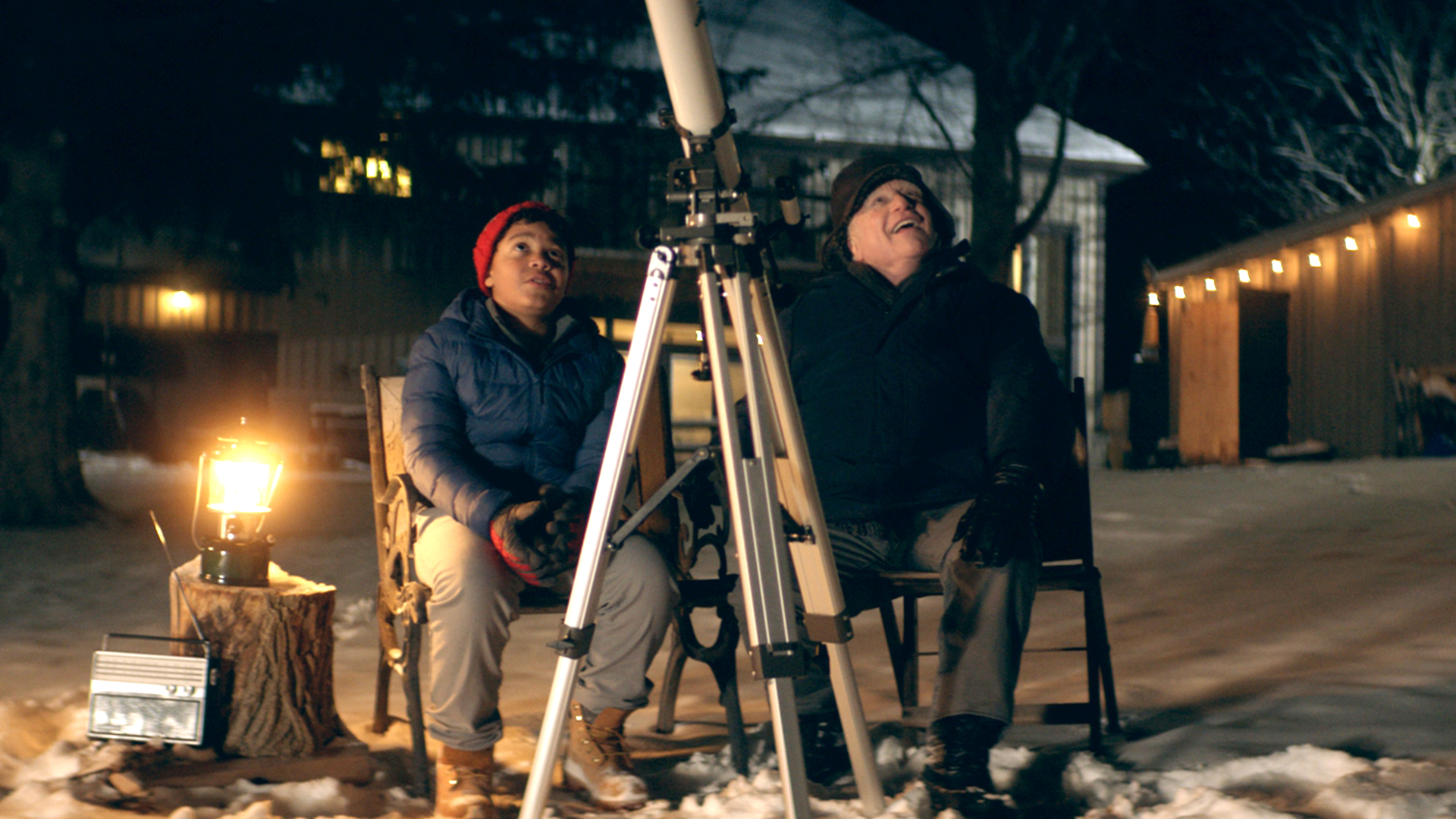Cast: Matthew McConnaughey, Anne Hathaway, Jessica Chastain, Mackenzie Foy, Wes Bentley, Casey Affleck, Michael Caine, Topher Grace, John Lithgow, Ellen Burstyn and David Gyasi.
Writers: Christopher Nolan and Jonathan Nolan.
Director: Christopher Nolan.
(PLEASE NOTE: Some MINOR SPOILERS re scene detail and broad plot)
Rating: 2/5

Deep into Christopher Nolan’s vast, verbose space opera Interstellar, crewmember Romilly (David Gyasi) sits with his ship captain, the experienced space jockey Cooper (Matthew McConnaughey). The conversation turns to the science of wormholes, those time-and-space defying pathways that are spoken of as fact by scientists in movies. Romilly takes a pencil and a small piece of paper, draws two ‘x’s on either end of the paper and folds the crosses together. He punches the pencil through the point where the ‘x’s meet, and says to Cooper something like, “And that’s how wormholes work.”
It seems a pointless scene that set your critic pondering as to its purpose. Cooper, a seasoned spaceman, would know what a wormhole is, so Romilly need not do this for his benefit or the mission’s. Instead, Romilly could only be speaking to McConaughey in his other key role in the film, that of audience conduit.
At some point in the narrative’s development, someone with clout (besides Nolan, clearly) felt that this B-movie hokum, inflated to a ridiculous degree by chalkboard’s full of formula and endless blatherings about mathematical astrophysics and gravitational singularities, needed to be more clearly explained to us Earth-bound ‘audience’ types. So Romilly’s Space Science 101 scene is inserted, essentially providing Nolin a voice to whisper, “Here’s what I’m talking about, paying public, plain and simple.”
What this minor, throwaway scene achieves, however, is to force the director to break free momentarily from his immense self-indulgence. Interstellar is Nolan pontificating on theories associated with space travel, wrapped in a flimsy story about family values and human one-ness that never really cares whether its audience is emotionally engaged or not. The ‘pencil-and-paper’ scene suggests he would just as soon not have to deal with lesser intellects at all.
The British director has been given free rein after banking billions of dollars with the Dark Knight trilogy and proving an acute storyteller with Inception, The Prestige, Memento and Insomnia. Most young, successful directors channel career momentum into personal, grand-scale projects and, like Nolan, usually reveal themselves to be not quite ready for it and too powerful to be told so. This fall from grace has impacted Coppola with One From The Heart; Spielberg with 1941 (then again, with Empire of The Sun); Cameron with The Abyss. Most recently, Wes Anderson (with The Darjeeling Limited), George Clooney (on Monuments Men) and Jason Reitman (with Labor Day) have had those moments.
The first sign that Nolan may have peaked previously is in his use of such an immense canvas to merely rehash overly familiar motifs. We get more vast landscapes (including, yes, an icy one); the ‘tubular world’ effect that inspired awe in Inception; clunky, black, angular machines designed to reflect real-world tech. And he revisits an increasingly disengaging intellectual preoccupation with the abstract nature of time and physics, used so captivatingly to explore ‘dream time’ in Inception and ‘memory’ in Memento yet ploddingly dull and confusing here. Nolan has more to prove before he can start self-referencing.
In the early passages of the story (scripted by Nolan with regular collaborator, brother Jonathon), references arise that suggest the fun stuff is always just around the corner. Teasing references to poltergeists and aliens; an underground government secret lab, conveniently located only a couple of hours from Coop’s home; giant dust storms that are symptomatic of the collapsing world ecosystem. But once Cooper and his team of astronauts are on mission, the pacing grinds, Nolan settling into 90-odd minutes of mission parameter status updates. Occasional personal interactions in the form of video messages from loved ones back home re-energise both the crew and the audience. (His role as Executive Producer on the Johnny Depp dud, Transcendence, was perhaps an early-warning sign that Nolan was becoming too enamoured with techno babble as reason enough for a film’s existence).
The actors strive to be as big as the director’s vision, each afforded their own quivery lipped, welled-up burst of grand histrionics. McConaughey’s ‘everyman genius’ Cooper is basically the same character played by Mark Wahlberg in Transformers: Age of Extinction, a Red State, good-guy mechanics whiz who has settled into life as a stay-at-home single dad. In an opening scene that hints at the full-blown overstatedness to follow, ‘Coop’ has the smarts to electronically hijack one of those pesky drone thingys and rewire its fancy innards to work his harvesters (machines that, in one inexplicable scene, gather themselves around his home like dogs at dinner time).
Co-star Jessica Chastain delivers her version of a paycheque performance, which is still fine; Hathaway overcomes a sense of miscasting to have some good moments; Wes Bentley and Casey Affleck are underused; a warbling Michael Caine, indecipherable. When an uncredited A-lister turns up to kickstart the third act, Interstellar begins to feel more like those disaster movies that Irwin Allen used to make, bulging with enough star wattage to keep our eyes on the screen and not rolling to the back of our heads.
And then there is that big, beautiful, blank void called ‘Outer Space’ and the challenge to fill it with all the awe and wonder Nolan and his visual effects team can muster. It is what every one will be talking about when the film hits theatres, as it should be; the scenes that look like 2001 A Space Odyssey are as good as anything since 2001 A Space Odyssey. Cinematographer Hoyte van Hoytema integrates his images seamlessly with that of the FX crew, achieving that grainy, wideshot, ultra-realism reminiscent of IMAX documentaries. The images are, as Dave Bowman would say, wonderful, but do not integrate as effectively with the character’s plight as the space-scapes of Alfonso Cuaron’s Gravity or Ron Howard’s Apollo 13.
After 170 minutes and a final act twist that proves more late-career Shyamalan than peak-form Nolan, one is left wondering whether the experience was worth the commitment. In striving to outdo himself, Nolan has only highlighted his limitations, providing his primed fan base with an empty space vessel that makes a lot of noise.
 Thursday, April 9, 2020 at 1:02PM
Thursday, April 9, 2020 at 1:02PM 

 Ageing,
Ageing,  Space Travel,
Space Travel,  drama
drama 


